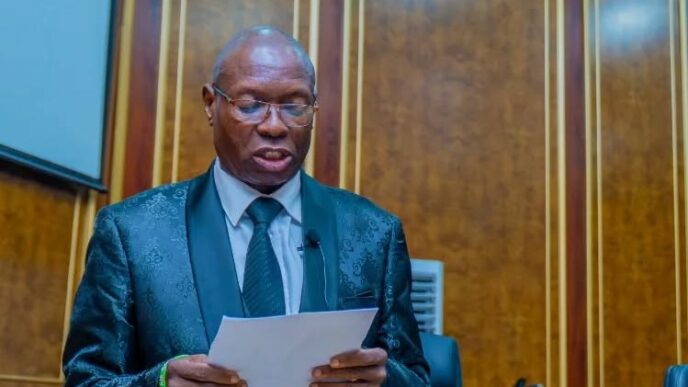The United Nations Economic Commission for Africa (UNECA) has announced the creation of the Africa Credit Rating Agency (AfCRA) to tackle the high borrowing costs faced by African countries.
In a statement on Thursday, the UNECA said that although the agency has yet to be formally launched, its goal is to provide credit assessments that reflect Africa’s unique political and financial realities.
The commission explained that AfCRA aims to address the disparities in interest rates paid by African nations compared to their global counterparts.
“Imagine a scenario, as of late 2024, where Germany is able to borrow $1 billion at an interest rate of 2.29 per cent. Over ten years, it pays about $229 million in interest,” the statement reads.
Advertisement
“Zambia, borrowing the same amount but facing a much higher rate of 22.5 per cent, would pay $2.25 billion. The math is straightforward; the consequences are not.
“That $2 billion gap, for a single loan, is driven not by fiscal policy or repayment history, but by perception.
“And in global credit markets, perception is often determined by agencies headquartered continents away.”
Advertisement
Claver Gatete, executive secretary of the ECA, said Africa doesn’t control the rating agencies, adding that its nations are often subject to external perceptions that distort how their economies are assessed.
Gatete explained that the external views often overlook Africa’s actual creditworthiness and long-term growth potential.
The UNECA estimated that Africa’s total external debt stands at $1.1 trillion, with the continent spending roughly $163 billion annually on debt servicing.
However, the commission noted that despite the figures, most African nations remain classified as sub-investment grade, a rating that leads to higher borrowing costs.
Advertisement
“Sub-investment grade ratings signal high risk to investors and lead to steeper borrowing costs,” the commission said.
“Countries spend billions more than wealthier counterparts to finance infrastructure, education, and health services.”
‘CREDIT RATINGS SHOULD BE SEEN AS INFORMED JUDGEMENTS’
Sonia Essombadje, chief of innovative finance and capital markets at the UNECA, said credit ratings are often misunderstood and should be seen for what they are — informed judgments, not absolute truths.
“Credit ratings are opinions, they combine quantitative models with qualitative interviews. It’s not just numbers,” Essombadje said.
Advertisement
Essombadje explained that ratings are shaped by data as well as subjective assessments of a country’s economic and political outlook, leaving room for bias.
“You’ll notice that every time there’s a crisis, our countries are downgraded,” she said.
Advertisement
“The process doesn’t fully assess the dynamics of African economies.”
Zuzana Schwidrowski, director of macroeconomics, finance, and governance at the UNECA, said the establishment of AfCRA is timely.
Advertisement
“With growing uncertainty in advanced economies and increasing global fragmentation, an African agency that understands its context can offer a much-needed perspective,” Schwidrowski said.
“Rather than relying solely on the credit rating agencies, be it global or African, to convey their message to investors, African countries can also really work much harder on their own narrative and explaining to investors why it’s a great idea to invest in Africa.”
Advertisement
The UNECA concluded that many African nations continue to pay more for borrowing, not necessarily because of their economic performance, but due to how they are perceived.
On December 19, 2024, the African Development Bank (AfDB) said African countries, including Nigeria, have collaborated to establish a continental credit rating agency to counterbalance Western credit rating agencies’ bias against Africa.








